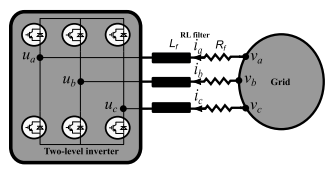Model Based Maximum Power Point Tracking Algorithm with Constant Power Generation Capability and Fast DC Link Dynamics for Two Stage PV Systems
Objective
The main objective of this project is to propose a model based maximum power point tracking algorithm with constant power generation.
Abstract
In this project, a model-based maximum power point tracking (MPPT) technique is presented for a two-stage grid-connected photovoltaic (PV) system, The proposed methodology is compared with the well-known perturb and observe (P&O) method for evaluation. Additionally, a modified version of the P&O is included in the comparison for better assessment. The effect of different partial shading conditions on the system’s performance is also investigated. The DC-link PI controller is replaced with a new adaptive DC-link controller to enhance the transient behavior of the PV system. Moreover, the suggested DC-link controller removes the DC offsets, which appear in case of gradient increase or decrease in the input PV power. In contrast to the conventional PI controller, which has poor performance at such circumstances. The active and reactive power exchange with the grid is managed using a computationally efficient finite set model predictive control (FS-MPC) algorithm. Furthermore, switching frequency minimization is added as a secondary objective using a weighting factor less procedure. The simulation results of this method can be evaluated by using Matlab/Simulink Software.
Keywords: PV systems, model-based MPPT,
irradiance estimation, adaptive DC-link control, FS-MPC, weighting factor less,
Sensorless control, EKF.
NOTE: Without the concern of our team, please don't submit to the college. This Abstract varies based on student requirements.
Block Diagram

Specifications
Software Configuration:
Operating System : Windows 7/8/10
Application Software : Matlab/Simulink
Hardware Configuration:
RAM : 8 GB
Processor : I3 / I5(Mostly prefer)
Learning Outcomes
- Introduction to Matlab/Simulink
- What is EISPACK & LINPACK
- How to start with MATLAB
- About Matlab language
- About tools & libraries
- Application of Matlab/Simulink
- About Matlab desktop
- Features of Matlab/Simulink
- Basics on Matlab/Simulink
- Introduction to controllers.
- Study of PWM techniques.
- Project Development Skills:
- Problem analyzing skills
- Problem solving skills
- Creativity and imaginary skills
- Programming skills
- Deployment
- Testing skills
- Debugging skills
- Project presentation skills
- Thesis writing skills


 Paper Publishing
Paper Publishing
